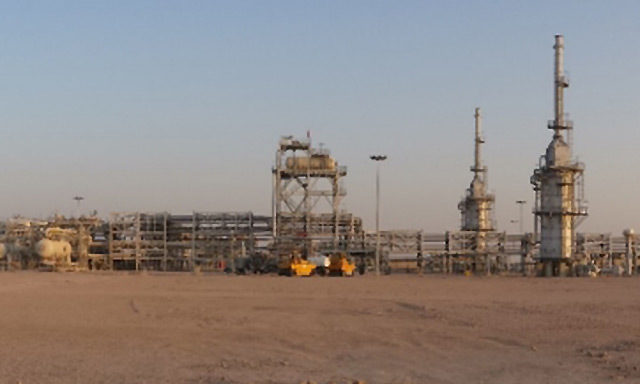
Energy Voice spoke to David Bell, Professor of Economics at University of Sterling, about how the Iraq crisis can realistically impact global prices of oil – including those at the pumps.
Energy Voice: Professor, what is the importance of the crisis on economics of oil?
Prof David Bell: Iraq is a small but quite an important producer of oil. The market for oil at the moment is relatively depressed because the world economy is still moving fairly slowly overall, particularly Europe is suffering from depressed demand.
In the UK, because the pound is quite strong, we are not feeling the full effect of that because oil is priced in dollars. So that is relatively OK for UK prices, although I would expect there would be some upward drift over the next few months unless there is a fluctuation of the dollar, one way or another.
Then, looking into the longer term, I do not think Iraq is that important in the overall issue surrounding oil prices.
There are factors that are likely to, perhaps, depress the demand for oil; things like the substitution of frack gas for oil would be quite important, and the increasing efficiency of cars actually depresses the demand for oil. [The demand] is not going to go away, obviously, but you could think of these factors as holding back the price in the medium- to long-term.
Now, things that may push the price up are the gradual rundown in major exploration areas, for example in the North Sea and other parts of the world – as these are gradually lost, then price of oil is bound to rise again.
So if you are thinking about 20-30 years it all depends on how these forces will come to play. For the moment, I think the view is that the price will be roughly stable.
But geopolitical events such as any suggestion that the problems that are occurring in Iraq might be carried over into the Gulf, in particular into Saudi Arabia – who are certainly involved in this conflict to some extent – that would have a major impact in the short-term on the price.
EV: Short-term, but not long-term then?
DB: I do not think Iraq makes that much of a difference because it has never not really got its oil industry back into shape. It was not very much in shape from Saddam Hussein, then we had the war, so it has not been at its full potential anyway – so, the fact that it did lose some of that potential now might be taking out production in the near future, but in global terms it is not hugely important.
EV: So why do we see this much price fluctuation now?
DB: The markets always try to anticipate what is going to happen and how that will affect the prices, because you do not want to be caught short in the future, with too much or too little oil.
It does look very uncertain [in Iraq] so it is not surprising that the prices fluctuate around quite a bit at the minute, but they are short-term fluctuations.
EV: There have been signs that Kurdistan might use the crisis to separate from Iraq. How would that result in how much we pay for oil?
DB: Iraqi oil is partly in the Kurdistan area and partly down towards the mouth of the Tigris. If Kurdistan became an independent state – and the Kurds always wanted to have an independent state, but that creates problems for Turkey for Iran as well – so, if Kurdistan did get cut off [from Iraq], there would be some time before it could adjust. It does not seem that the Sunnis and Shias that are in the rest of Iraq are actually affecting Kurdistan, which suggests they could maybe be insulated to some extent from the conflict. But, nevertheless, they would have to build up their own structure of getting in the supply chain – and also of supplying the market.
It would be very interesting to see what would happen if it did establish a separate state. I think it might be one of the more coherent states in the Middle East and I suspect one of their immediate priorities would be to make sure that industry in that region was reasonably well organised.
I would have thought that probably in the long term it would be beneficial for the price at the pumps but short to medium term there is always the uncertainty and the potential corruption in supply – resulting higher price.
EV: We cannot know how the Iraq crisis will unfold, but should be expect the prices to be going up just now?
DB: I think that the key issue here is what is the state of the world economy – that is the demand side. We have got America growing a bit; we have got Europe almost stagnant; we have got the newly industrialised countries like China and India not growing as fast as they were a decade ago – so demand will be increasing, but not hugely.
We have got potential alternatives [to oil] coming with time and I think frack gas will be an important alternative in terms of, for example, energy generation. So, unless the world economy moves up, it seems to me for the medium- to long–term outlook for oil price, the crisis is probably not going to have much of an effect.
Recommended for you
